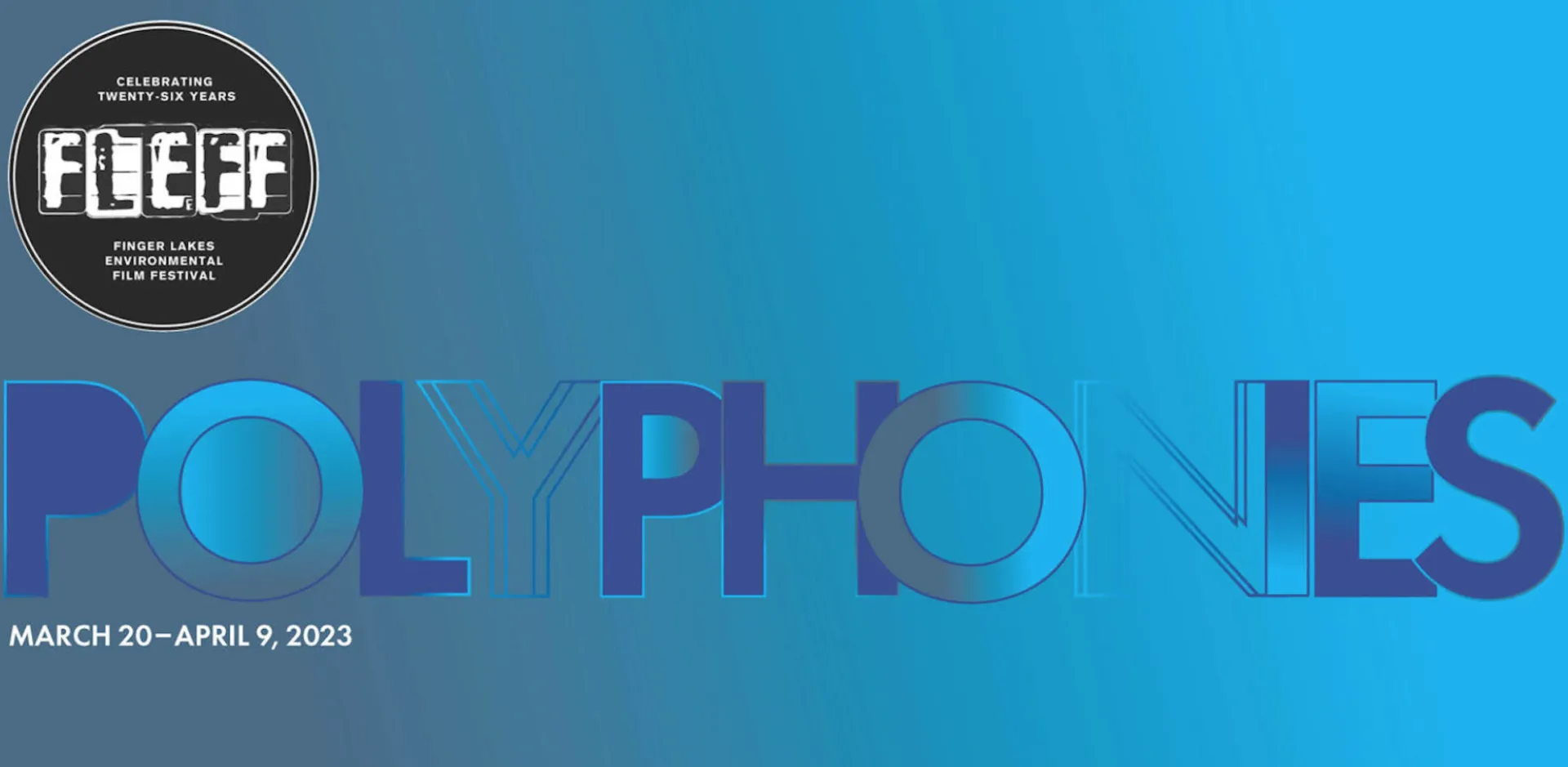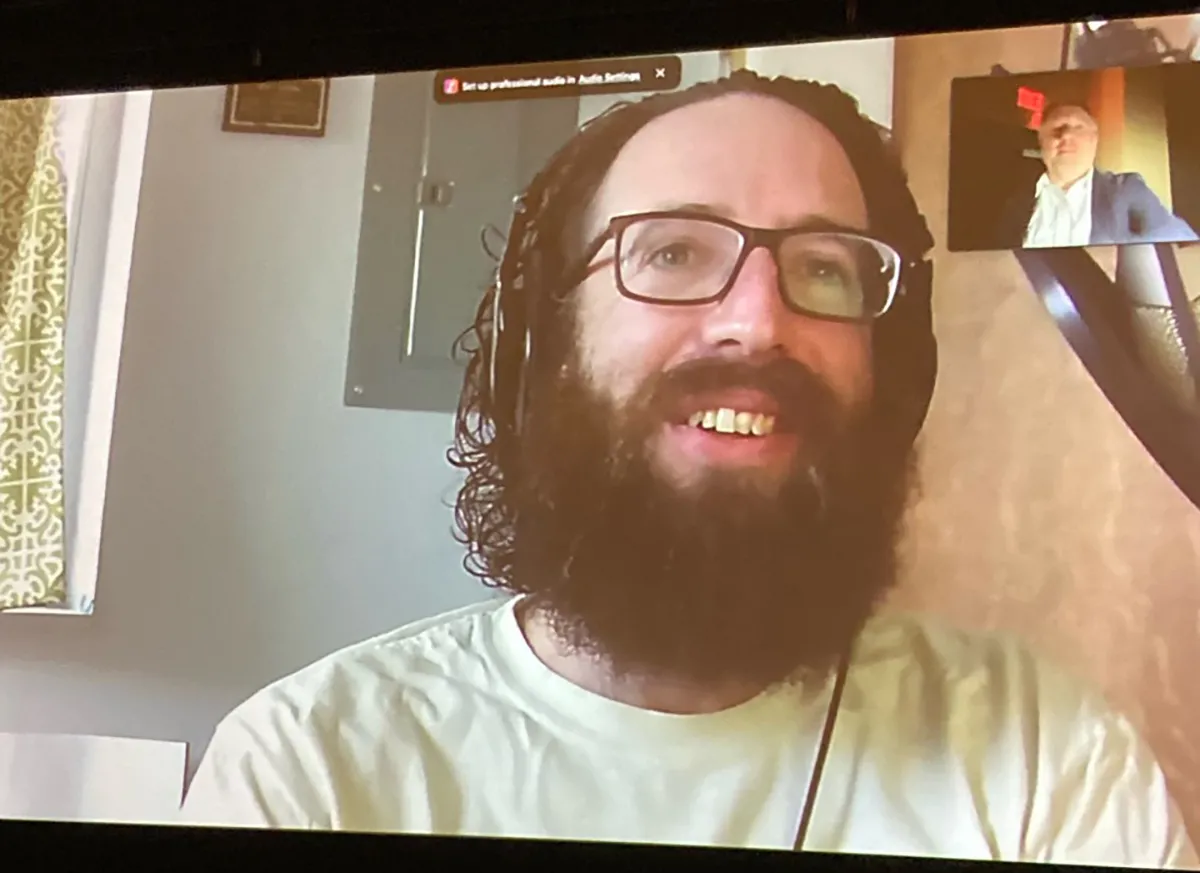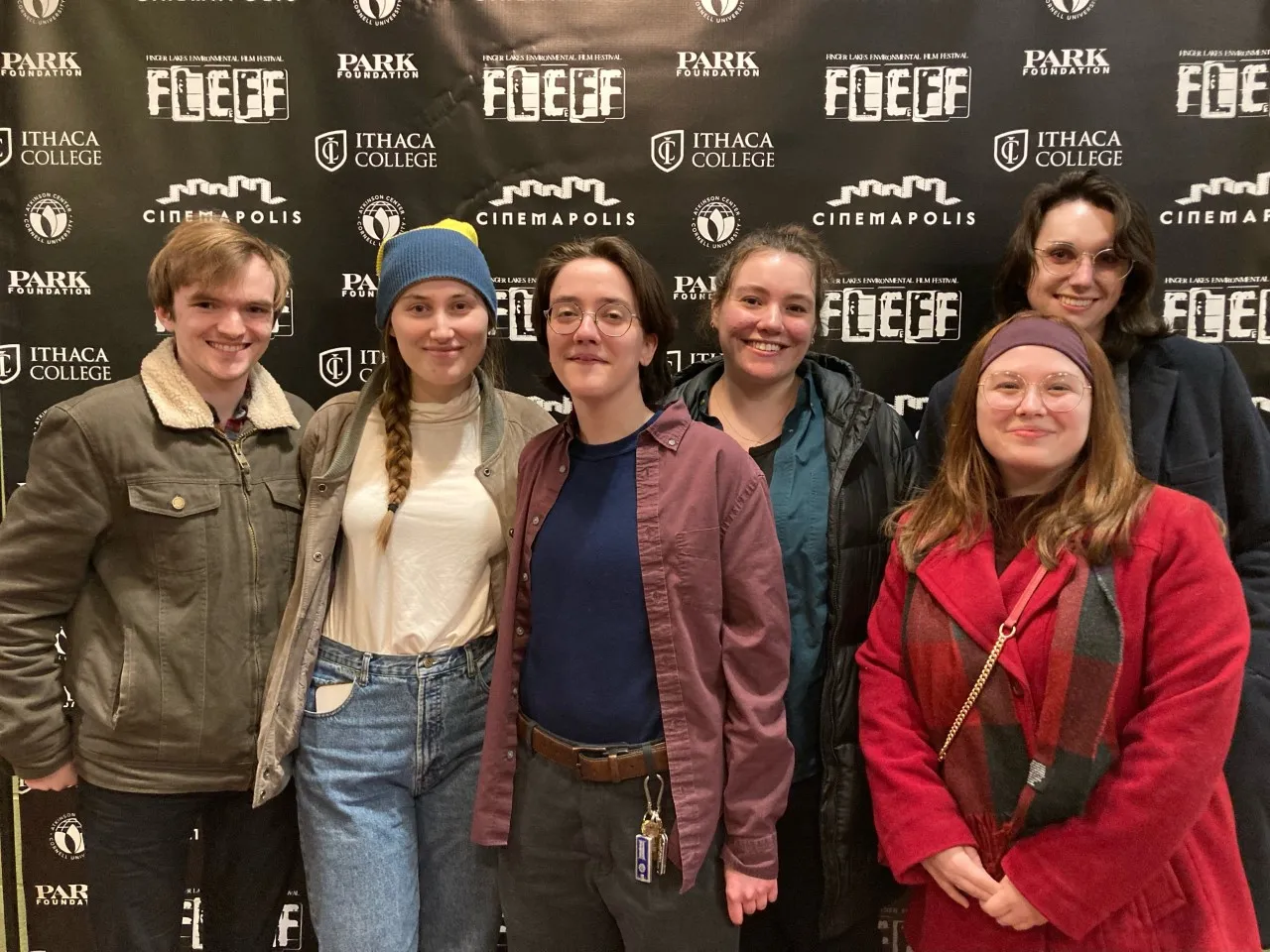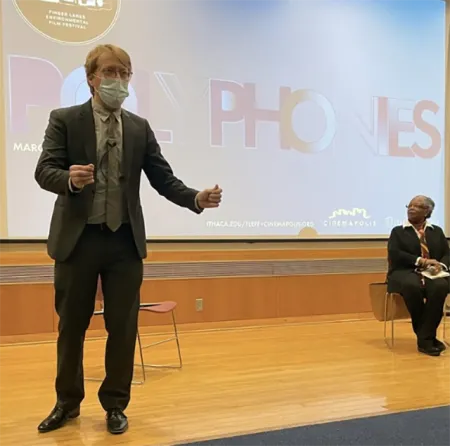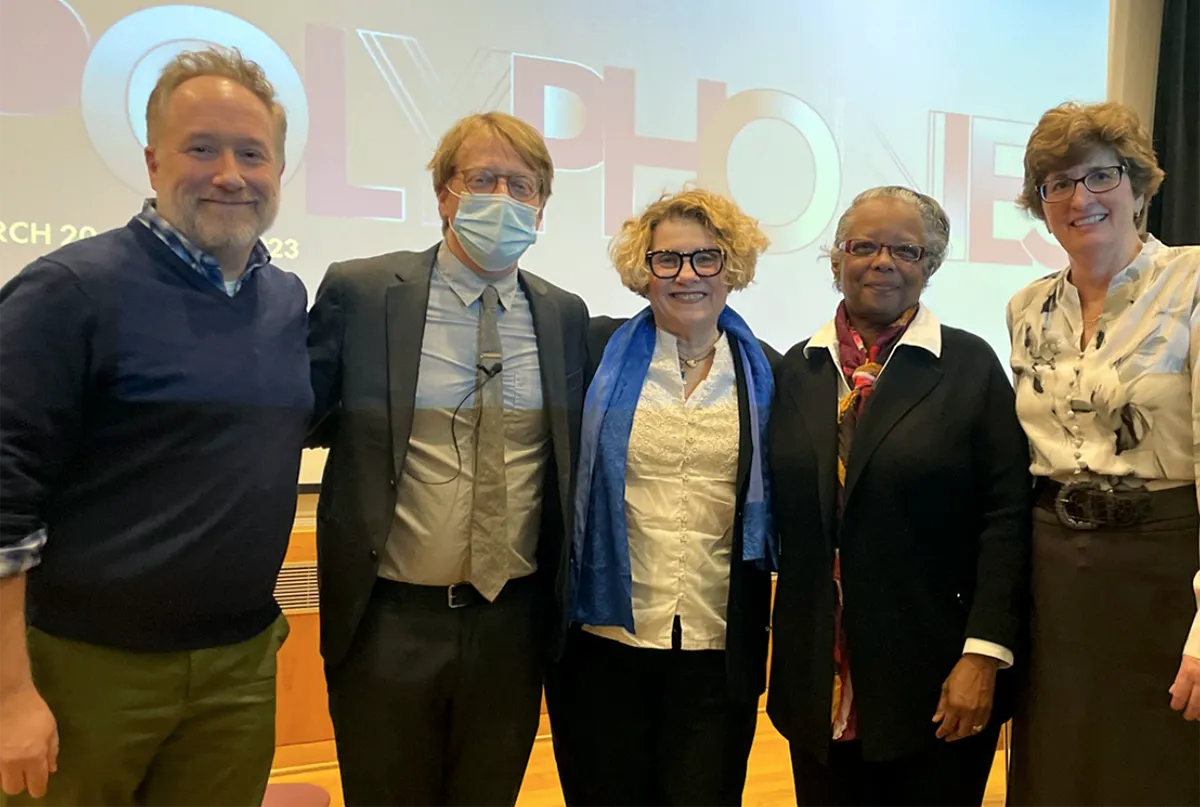Celebrating its 26th year, the Finger Lakes Environmental Film Festival (FLEFF) annually engages with hot-button environmental, social, and political issues and amplifies diverse voices and perspectives, while engaging a global audience.
The 2023 festival hosted 65 plus events, including film screenings, talkbacks with directors, book launches, concerts, panel discussions, and new media art exhibitions. This year’s theme, POLYPHONIES, celebrated the combination of multiple voices coming together.
“The FLEFF team feels very strongly that there needs to be a way to work around the current polarizations in the world and America,” said Patricia Zimmermann, director of the Finger Lakes Environmental Film Festival and Charles A. Dana professor of screen studies. “One way of approaching that is the concept of polyphonies, which is multiple different voices, practices, and perspectives joining together.”
True to its mission of linking the local with the global, FLEFF brought together filmmakers, writers, and industry experts from across the world to tell stories and tackle issues that spanned continents, with films screened in multiple languages.
But beyond its global reach, more so than any previous year, the festival also served as a showcase for the Ithaca College community. In addition to Zimmermann’s tireless work, alumni, students, and community partners played crucial roles in the running of the festival, and in producing some of the content that was shown. Their work proved that the festival is a prime example of the theory, practice, and performance educational philosophy that drives Ithaca College, and demonstrated the power of cross-section and community partnerships that are a tenet of the college’s strategic plan, Ithaca Forever.
